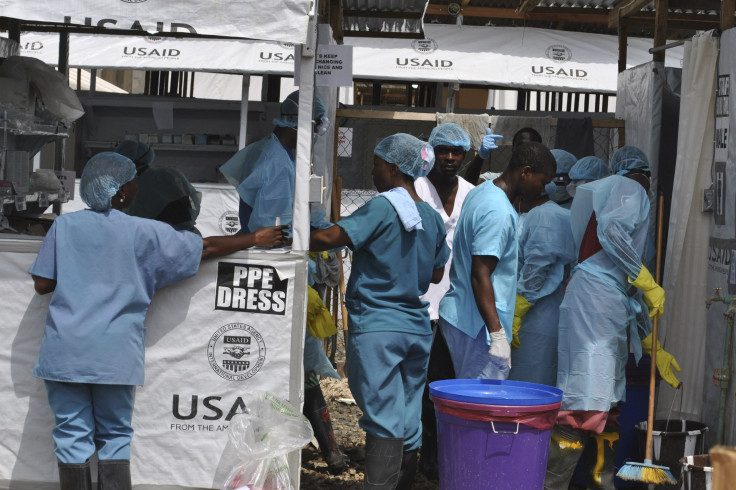Liberia's US-Built Ebola Treatment Centers Stand Empty; Critics Say Response To Outbreak Came Too Late

As the Ebola outbreak begins to slow in Liberia, several treatment centers built by the U.S. government are now nearly empty. Some of the facilities haven’t seen a single patient infected with the virus, according to a report from the Washington Post.
The U.S. committed around 3,000 troops to West Africa last September to help combat the spread of Ebola, which has now claimed nearly 8,500 lives in the worst-ever outbreak of the deadly virus. The construction of several treatment centers by the task force was seen as a crucial step against the epidemic, particularly after the U.S. Centers for Disease Control and Prevention predicted that the disease could spread to 1.4 million people by January.
By the time many of the treatment facilities were being completed, however, Liberia’s Ebola epidemic began to slow considerably, with a sharp decline in reported cases over the past couple of months. Last week, less than one new case per day was reported in Liberia, according to the report. Some critics have said the poorly timed international response to the epidemic was primarily responsible for the empty facilities. "If they had been built when we needed them, it wouldn’t have been too much," Moses Massaquoi, the Liberian government’s chairman for Ebola case management, told the Post. "But they were too late."
U.S. officials have rejected this criticism, saying their response was appropriate based on expert predictions. “A lot of people are evaluating the strategy based on what we know today, not what we knew at the time,” Maj. Gen. Gary Volesky, the top U.S. military officer in Liberia, told the Post.
A new scientific report suggests that the Ebola epidemic could be contained by June in Liberia, the West African country that has had the most success in fighting the outbreak. Experts writing for the scientific journal PLOS cautioned that this would only be possible if the current rate of hospitalizations continue, reported CNN. Though Liberia initially saw some of the fastest rate of growth of the epidemic, a number of moves, including ramping up hospital capacity and implementing safer burial practices, may have helped to contain the outbreak.
Despite the strides that have been seen in the country, global health experts are still warning that the epidemic has the potential to flare up again. The fragmenting into several smaller outbreaks means that it still has the potential to reignite more widespread contagion, said David Nabarra, the United Nations Secretary General’s special envoy on Ebola, according to Bloomberg. The U.N. has emphasized that a “sustained commitment” by the international community is needed to reach zero cases of the disease.
© Copyright IBTimes 2024. All rights reserved.






















